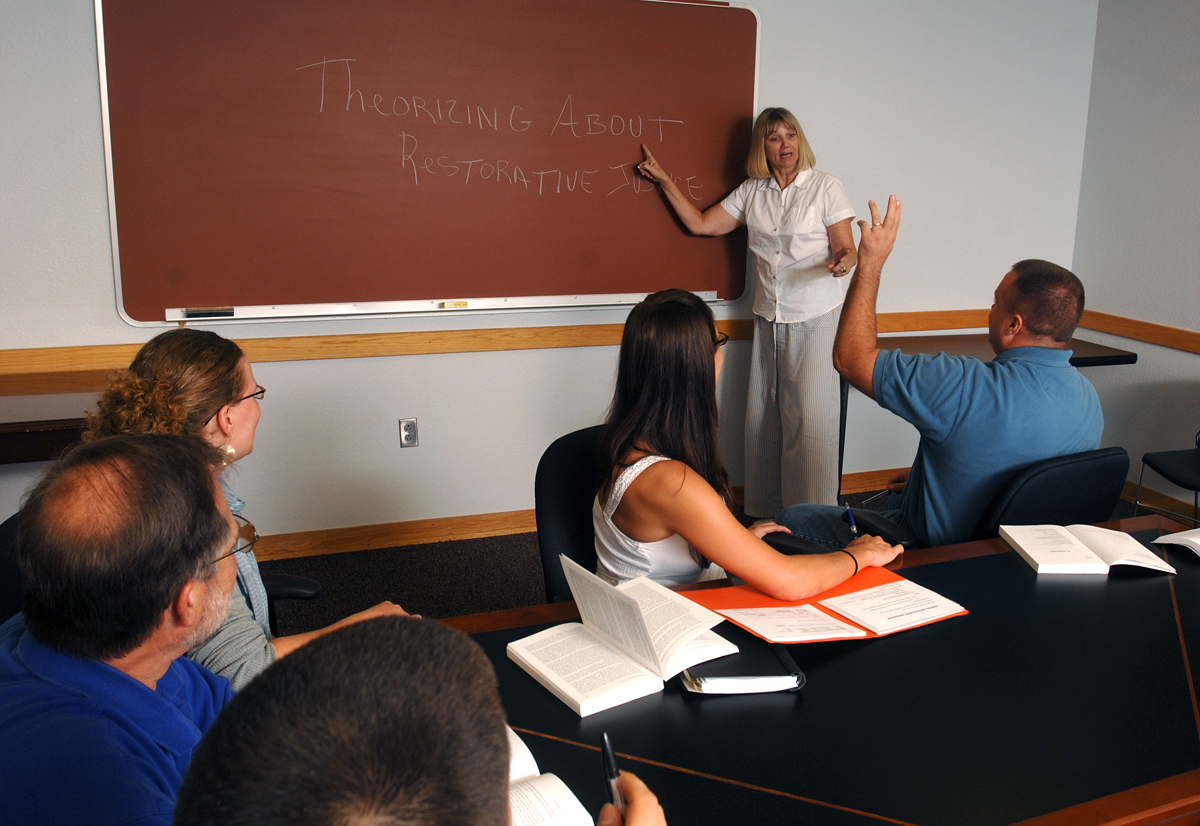Justice Studies effectively balances students and research
The Justice Studies program at the University of West Florida (UWF) has gone through many changes since its inception in the 1970’s, but one thing that has stayed the same is a unique balance between student focus and research.

Former department chair Cheryl Swanson said the program was originally aligned with political science and criminal justice. It was not until the 1990s that the program really came into its own. Around that time, Swanson saw the need to hire additional faculty, attract more students and gain external exposure through research.
“I have personally seen the amount of growth a few carefully-selected faculty can provide,” said Swanson. “Now we can focus on national visibility, as well as regional.”
Faculty in the Justice Studies department at UWF have published research nationally, and several of the articles are used for teaching all over the country. Matt Crow, an associate professor, and John Smykla, a distinguished professor, have gained national attention for research on Taser use and reentry court. Crow worked with an alumna to publish research on police use of force and Taser use and Smykla has worked extensively with other faculty and even the Florida Supreme Court to develop knowledge on reentry court.
Despite the highly-acclaimed research, Smykla said, the focus remains on students.
“The balance between student focus and sponsored research is incredible at the university,” said Smykla. “Many professors want to solely focus on students, whereas others would rather spend all their time getting published. What’s great about UWF is that it attracts those who are interested in both: teachers who are passionate about and prioritize their students, but also want to create knowledge and apply their research experience.”
Jamie Snyder, who began teaching at UWF in Fall 2011, came from the top-ranked Justice Studies program in the country at the University of Cincinnati. She said she had a choice between UWF and other schools in the region, but valued both teaching and research and saw the best opportunity at UWF.
“The teaching here is structured so that professors have time to do research, teaching and service,” said Snyder.
Most Justice Studies classes on campus have between 30 and 40 students enrolled per section. At larger universities, that number increases to 200 to 300 students per section.
“UWF has really made a name for itself recently, not just because of the fantastic articles that have been published,” said Snyder. “It’s also because that research is coming from an institution that values close relationships between teacher and student. That’s rare.”
As the department continues to grow in numbers and popularity, the faculty members are confident that the balance will continue.
“We really have our pick of [faculty] applicants,” said Smykla. “That allows us to choose the best, to pass along the best possible education to our undergraduate and graduate students and to continue creating new knowledge and publishing cutting-edge research.”


